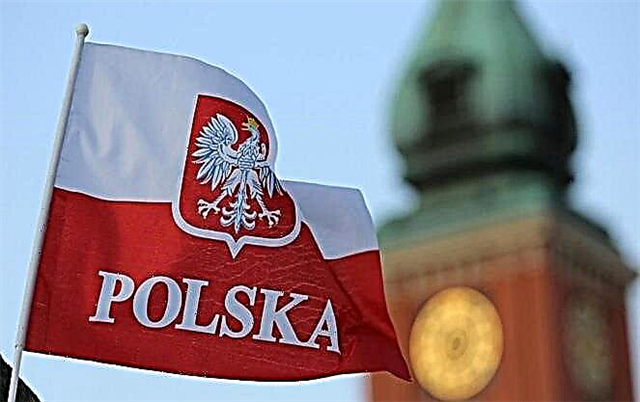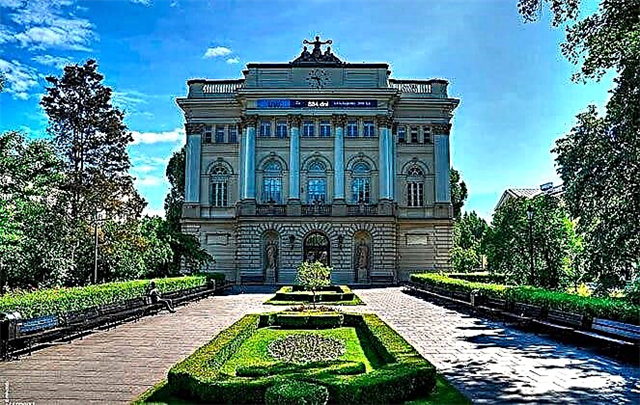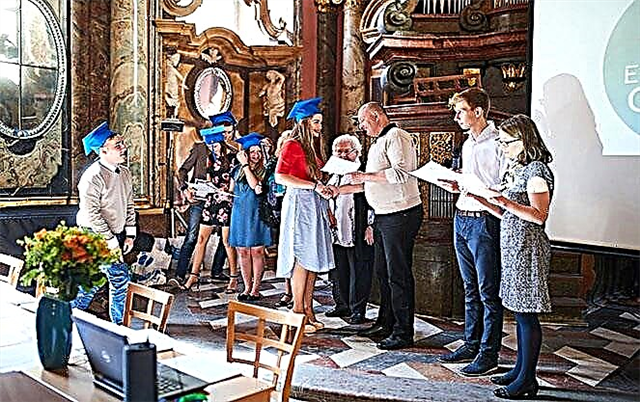Studying in the Czech Republic is becoming more and more popular with students from post-Soviet states. Even if you started studying at a university in your home country, after receiving your bachelor's degree, you can go abroad for a master's degree. Those who dream of a European-style diploma should learn more about what opportunities a master's program in the Czech Republic provides for foreign students.

Benefits of obtaining a master's degree at a Czech university
Holders of bachelor's or specialist's diplomas obtained in higher educational institutions of the CIS countries, if they wish, can enroll in a magistracy in the Czech Republic.
Studying in this country has the following advantages:
- many Czech universities are included in the rankings of the best universities in the world;
- tuition fees for programs taught in English or German are relatively low compared to universities in Western Europe;
- if you complete language courses and master the Czech language at a level not lower than B2, you will be able to study in the master's program for free, even if you have already received a free education in your home country;
- it is not necessary to enter a master's program in the same specialty that is indicated in your bachelor's diploma - you can choose a related specialty or master a completely new direction of activity, expanding your opportunities in the labor market;
- student exchange with the world's leading universities is widely developed here;
- you can get an actual modern profession or specialize in rare, unique fields of science - for example, ancient Egyptology;
- Czech universities' diplomas are recognized all over the world, providing their holders with the opportunity to find a job in any country.
Popular areas of study
The areas most often chosen by applicants are economics, mechanical engineering, computer science, medicine and law. An economics degree can be obtained at universities, specialized universities and higher business schools. To enter there for a master's degree, you must complete a bachelor's degree in any specialty.
A master's degree in computer science can also be obtained with any bachelor's degree in your pocket. However, for admission to technical universities in Brno and Ostrava, you must have a technical education or a bachelor's degree in exact sciences, although there are educational institutions that accept applicants based on the results of entrance exams with a bachelor's degree in any direction.
The study of jurisprudence and medicine has its own characteristics: there is no division into bachelor's and master's degrees in these specialties - training is carried out continuously for 5 or 6 years, and graduates immediately receive a master's degree.
Therefore, it is possible to study in these specialties both with a bachelor's degree and with a certificate of secondary education.
Preparatory Programs
To get the opportunity to study free of charge in a master's program at a Czech university, foreign students need to know the Czech language at the B2-C1 level and pass exams to obtain the corresponding language certificate.

At the Prague Education Center, you can not only learn the language, but also study the terminology of specialized subjects in the field of knowledge you need. For applicants to the master's program, the center offers an intensive semester course (January-June), which includes 477 academic hours of studying the Czech language and up to 150 hours of specialized subjects to choose from.
The cost of a language course is 2910 euros, the program for studying individual subjects is 420-480 euros. The volume of classes is 25-30 hours per week.
There are also one-year training courses: SMART (600 hours, 3910 €), STANDARD (910 hours, 4760 €) and COMPLEX (1120 hours, 5370 €). Discounts and payment by installments are possible. Students studying at the center are provided with a hostel.
What you need for admission to the magistracy
Admission to a master's degree in the Czech Republic requires serious preparation. The sequence of actions looks like this:
- Choose a specialty.
- Find universities where you can get the desired specialty, and familiarize yourself with the conditions for admission.
- Decide on the language of instruction. If you want to study for free, you need to find suitable language and preparatory courses, take a course and pass exams to obtain a language certificate of proficiency in the Czech language. If your choice fell on English, take care of obtaining an international language certificate.
- Prepare and send a package of documents for admission within the time frame established by the university. The preparation process involves nostrification of a bachelor's degree and payment for participation in exams (20-30 euros).
- After the university receives the documents, shortly before the exams, you will be sent an invitation, on the basis of which you can apply for a short-term visa to travel to the Czech Republic for the period of the exams. To obtain a visa, you must have a passport.
- You go to the Czech Republic and take the entrance exams.
- If everything went well and you were enrolled in a university, you should decide on accommodation: apply for a place in a hostel or rent an apartment. Proof of residence will be required when applying for a visa. If you are enrolled in paid education, you must pay in accordance with the contract (per semester or per year).
- Obtain an official confirmation of enrollment in the university (wait for it to be sent to you by mail). Based on this document, the Czech consulate issues a long-term study visa. Next, you need to collect documents for a visa, get it and go to the Czech Republic to study.
To enter a university, it is important to submit your documents on time. In different universities, applications are accepted at different times. For example, at the Charles University in Prague, applications from applicants are accepted until March 1, in other educational institutions - until the end of April. You can clarify the deadlines for submitting documents on the official website of the educational institution in which you plan to enroll.
The bachelor's degree that you submit to the university must be nostrified.
Nostrification is an official procedure that allows documents issued in one country to gain legal force in the territory of another. It confirms the approximate correspondence of the level of knowledge acquired by a graduate in his native country to the level of knowledge of holders of Czech diplomas in this specialty.
Between the Czech Republic and some post-Soviet states, there is an agreement on a simplified procedure for the mutual recognition of education documents. In particular, it is relevant for Belarusians, Ukrainians, Russians and citizens of Kyrgyzstan - they do not need to certify diplomas submitted for nostrification using apostille or consular legalization, it is enough to provide a copy of the document with a translation into Czech.

But for Kazakhstanis, Georgians and Azerbaijanis, the rules are somewhat different: the authenticity of the diploma submitted for nostrification must be certified by an apostille.
Nostrification of bachelor's degrees is carried out in public universities of the Czech Republic or in private higher educational institutions that have state accreditation.
Documents for admission to the magistracy
The packages of documents that are submitted for admission to the magistracy may differ slightly depending on the university and the specific specialty. The general list includes:
- application for admission to a university;
- confirmation of payment of the state duty;
- notarized copies of educational documents (bachelor's degree and diploma supplements);
- notarized translations of educational documents into Czech;
- certificate of nostrification of the diploma;
- certificates confirming language proficiency (Czech or English) at the required level. For Czech, this is a state certificate, which confirms the level of language proficiency at a level not lower than B2 (for some specialties related to linguistics, not lower than C1). When applying for paid education in English, an international iBT TOEFL 70, IELTS 6 or TOEIC 800 certificate is required;
- 3 or 4 color photos (35 x 45 mm)
You may also need a motivational essay or resume, portfolio (for creative specialties), recommendations, confirmation of financial solvency, presentation of work projects. You can clarify the requirements in the administration of the faculty for which you are applying.
In some universities, a certificate of proficiency is not required; instead, an entrance exam in Czech or English is held.
You can enter private universities with basic knowledge of the Czech language and take an intensive language course in parallel with the basic training during the year.
You can download the application form for admission on the university website. In some educational institutions, applications are made online.
Documents are sent to the university by registered mail, you do not need to go to the Czech Republic for this. However, for the period of passing the entrance exams, you need to come to the educational institution in person, and for this you will need a visa.
Entrance exams
To enter the magistracy, you must pass the entrance exams. Usually this is an exam in a specialty and one or two tests in specialized subjects.
For example, a special subject, English and higher mathematics, is leased for economic areas. On the exam in the specialty, you must demonstrate knowledge corresponding to the level of a bachelor's degree in this area.
The format of exams can be different: written work, oral questioning in the presence of a commission, or tests.
Each university sets the time for examinations for master's degrees independently.
At public universities, the admission campaign period lasts from late May to early June. Private universities can set their own deadlines for accepting documents and passing exams.
Features of the educational process
Most master's programs in the Czech Republic involve full-time studies. However, for students of certain specialties in state universities, a combined form is provided, including attending lectures and seminars 1-2 times a week, and the rest of the time independent work.

Distance learning (online classes with periodic attendance at intensive seminars) is more often practiced in commercial universities.
Foreign students should note that long-term study visas are only issued to full-time students.
Education in the magistracy takes place according to the standards of the Bologna system on the basis of points-credits.
For each subject studied, the student receives a certain number of credits. The course, designed for 2 years, "costs" 120 credits - 60 per year or 30 per semester. Each institution sets its own minimum number of credits with which a student is allowed to proceed to the next course or continue studies in the next semester.
Study programs in the Czech Master's program are quite flexible. There is a list of compulsory subjects that a student must study and pass in order to gain admission to the state exam for a master's degree.
There is also a list of compulsory electives. From this list, the student himself chooses the areas that interest him, and signs up for a course with teachers who read these academic disciplines.
Czech educational institutions regularly invite renowned scientists from Europe and America to give lectures on certain topics. Students try to sign up for such courses in advance, since the number of places may be limited.
Czech universities also have additional study programs (series of lectures and seminars) that provide an expanded presentation on a particular topic. They can be free or paid. These courses are not required to attend, but credits are awarded for completing them.
Moreover, additional courses can be attended not only at the university to which you are enrolled, but also in other educational institutions. Gaining knowledge of any kind in the Czech Republic is welcomed and goes into general credit.
If in two years you did not manage to collect 120 credits, pass all the necessary subjects, pass state exams and defend your diploma, you are allowed to extend your studies for one more year free of charge. If the student does not meet the 3 years, he can continue mastering the curriculum, but now on a paid basis.
The amount of payment for exceeding the time of study is set by the university. The maximum period for master's studies is 5 years.
On master's programs in the Czech Republic, a change in specialty is allowed. To continue studying in a new direction, you must pass several exams in specialized subjects and pass an oral interview.
Cost of Master's Degree in the Czech Republic
Education in the magistracy of public universities in the Czech Republic in the Czech language is free for Russian students and other foreigners. Private universities are often limited to undergraduate programs and do not offer a master's course.
In the majority of higher educational institutions in the Czech Republic, education is conducted in the state language. Programs in English can be found mainly in the country's leading universities in Prague and Brno.
| Educational institution | Master Program | Tuition fees in English (euros per year) |
|---|---|---|
| Charles University in Prague | Protestant theology Jurisprudence (5 years) General Medicine (6 years) Dentistry (5 years) Pharmaceuticals (5 years) Anglican Studies and American Studies, Philology, Historical Sciences, General Theory and History of Culture and Art, Sociology Physics (specialization), mathematics, computer science Psychology, pedagogy (specialization) Economic theory, political science, international sociology Sports physiotherapy Physical education and sports Europhilosophy (German and French philosophy in Europe) | 1 000 5,000 (for the entire program) 11 800-14 100 13 300-14 100 7 600 4 300 5 500 4 250 6 000 8 600 6 300 2000 in English, 200 in German |
| Technical University in Prague | Computer science | 4100 |
| Higher School of Economics in Prague | international Management Economics of Globalization and European Integration | 1 800 3 600 |
| Agrotechnical University in Prague | Agronomy, forestry, economics and management, informatics | 3500 |
| New York University Prague | Business Administration, Psychology, Communications and Mass Media, English Language and Literature, IT Management, Finance, Marketing | 20 000-28 000 |
| Institute of Finance and Management in Prague | Economics, informatics | 2500 |
| Metropolitan University Prague | International relations, business | 2500 |
| Graduate School of Hospitality in Prague | Hotel management, gastronomy and tourism | 3000 |
| Academy of Music Arts in Prague | Art management, dramatic art, scenography, theater management | 580-1000 |
| Masaryk University in Brno | Natural Sciences Faculty of Philosophy English language and literature Faculty of Education Faculty of Economics Faculty of Informatics Faculty of Social Sciences | 5 000 1 900 4 000 2 115 3 500 3 000 3 000 |
| Technical University in Brno | Architecture (additional programs) Faculty of Electrical Engineering and Media | Is free 3 000 |
| University of Agriculture and Forestry. Mendel in Brno | Faculty of Economics - studying some of the subjects in the chosen language (English, German, French, Spanish, Italian, Russian) | is free |
| University of Veterinary Medicine Brno | Veterinary medicine | 7600 |
Living expenses in the Czech Republic for students
Foreign students in the Czech Republic are provided with places in hostels. There are state and commercial hostels. Accommodation is paid, but prices are much lower than in Western Europe.
The cost of living depends on the location and level of comfort of the home.You can live in budget class dorm rooms for 100-170 euros per month, premium-class apartments will cost 200-350. You can also rent an apartment in the city for 400-700 euros per month. In the case of renting for three or four people, the apartment will cost about the same price as the hostel.
In the presence of cheap housing (up to 200 €), the student will spend 430-450 € per month on living in Prague. A foreigner can apply for a special scholarship "for living", which partially compensates for the price of housing.
On average, students spend 450-500 euros per month on living in the Czech Republic.
In addition, foreign students in the Czech Republic are allowed to work: they can get part-time, night or shift work with a pay of 3.8-7.7 euros per hour. Sometimes graduate students are hired in their specialty, registering it as a paid internship.
Prospects after completing a Czech Master's Degree
Upon completion of their studies, having received a master's degree, graduates can find work in their specialty in the Czech Republic or other EU countries. The Czech Republic is experiencing a shortage of chemists, engineers, mechanical engineers, doctors and computer scientists, so young specialists in this profile often find work even before graduation.
Czech enterprises and branches of international companies are willing to take graduate students and university graduates for internships, and after successfully completing the internship, they can provide them with permanent jobs.
The curriculum of private universities includes compulsory practice at a specialized enterprise
If you apply for an official job in the Czech Republic as a specialist with a higher education, then you get access to all the social benefits of this country: the same level of wages as local residents, health insurance at the expense of the employer, paid vacation and much more. Some companies provide accommodation for foreign employees - free of charge or at a reduced price.
If you have been living in the Czech Republic for more than 5 years (including the time of studying in language courses and at a university), you can get a permanent residence permit (permanent residence). After 10 years of uninterrupted residence in the country, it is allowed to apply for Czech citizenship.
Salaries in the Czech Republic range from 1000-1500 euros per month (engineers, doctors) to 2300-2800 euros (programmers). If you want to earn more, you can try to find a job in Western Europe (Germany, Austria) or Scandinavian states. Czech diplomas in these countries are recognized without restrictions.

If you want to engage in scientific activities, the Czech Republic has excellent conditions for this. Technical universities have excellent equipment with which you can carry out the most complex research, natural science and humanities faculties have unique information on any topic.
If you have original scientific ideas, after completing the Czech Master's program, you can enroll in a doctoral program. To do this, you need to submit an application to the university and provide a draft of a future dissertation.
You can study for free in Czech in doctoral studies at public universities.
In addition, graduate students have the opportunity to receive government scholarships or work at the department. Research results are published in scientific journals and presented at international conferences. Postgraduate students have the opportunity to communicate with the world's leading scientists and keep abreast of the latest scientific advances. For current projects, you can get grants from the university, scientific foundations or private companies.
Doctoral studies last 2-3 years, depending on the specialty. It is allowed to study intermittently. After completing his studies, a graduate student must pass state exams and defend a thesis. After a successful defense, he earns a PhD, which greatly expands the opportunities for a successful career in Europe. The largest number of PhDs is prepared by Charles University in Prague.
Finally
In public universities in the Czech Republic, subject to a sufficient level of knowledge of the Czech language in the master's program, you can study for free, in English - for a moderate fee. A flexible training program allows you to master the most diverse aspects of your future specialty. The Czech master's degree is recognized in most Western countries and allows you to get a high-paying job in the Czech Republic and other European countries. In addition, after graduating from the magistracy, you can enroll in doctoral studies and engage in scientific work.











